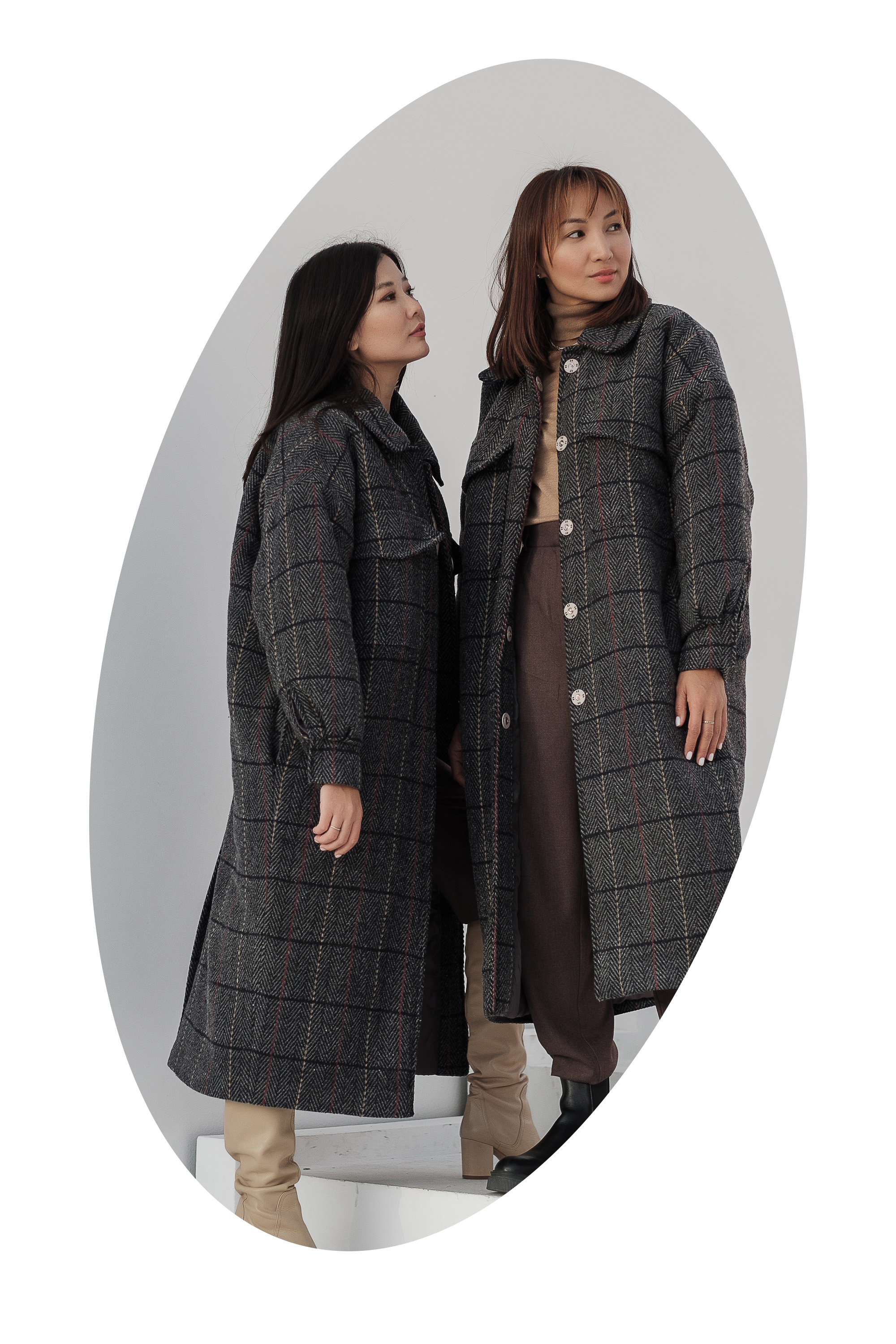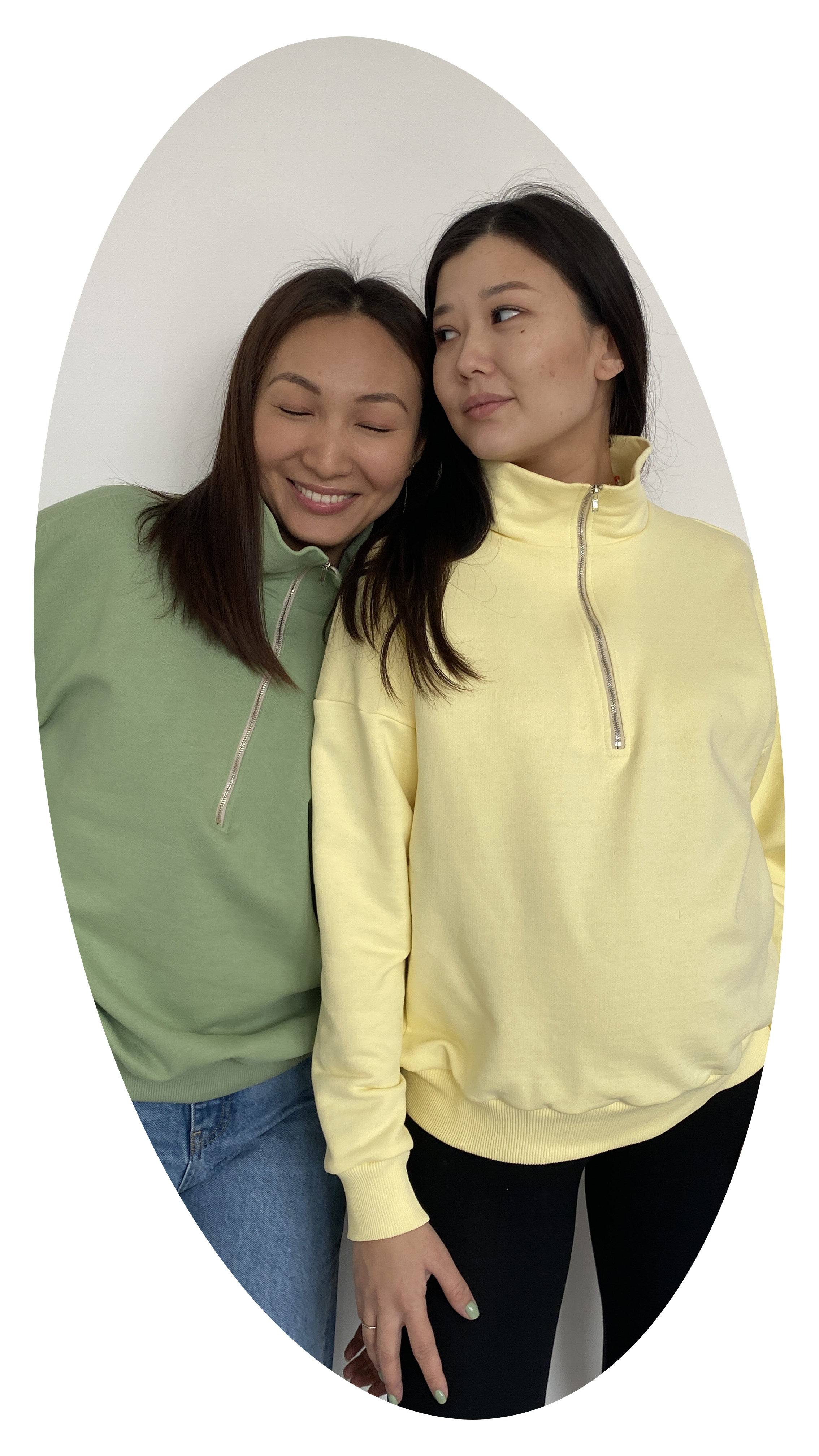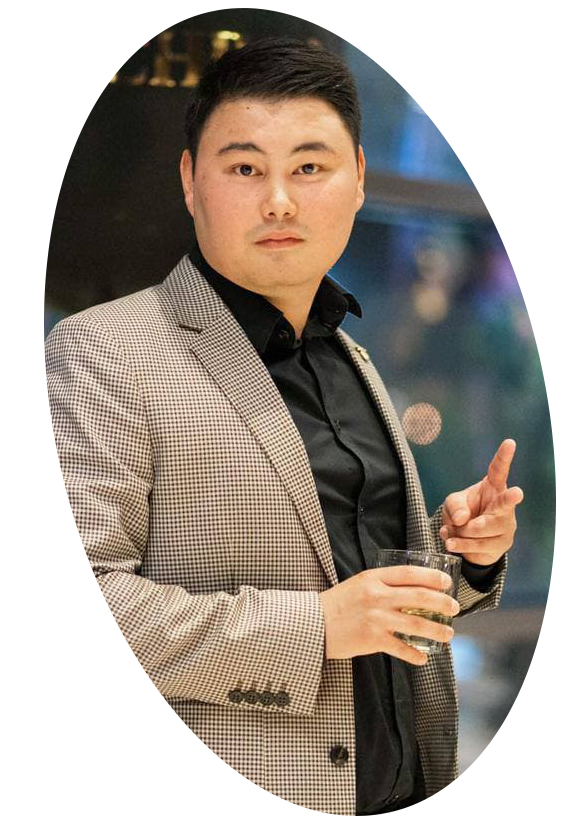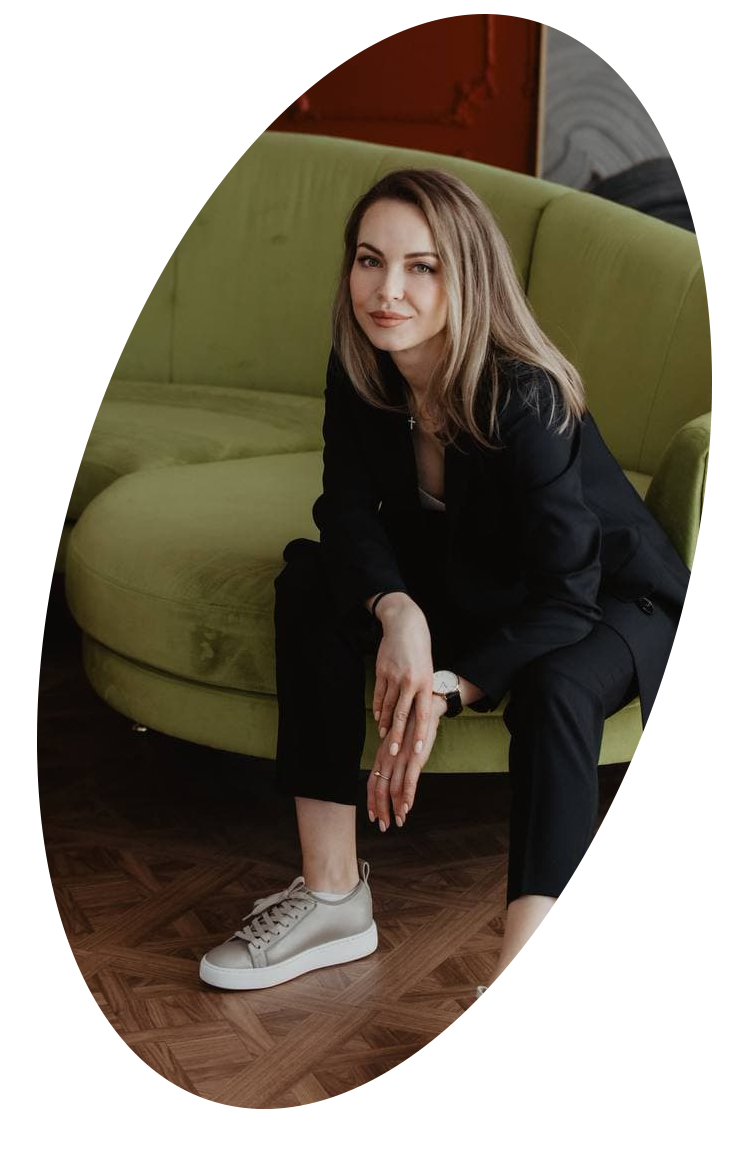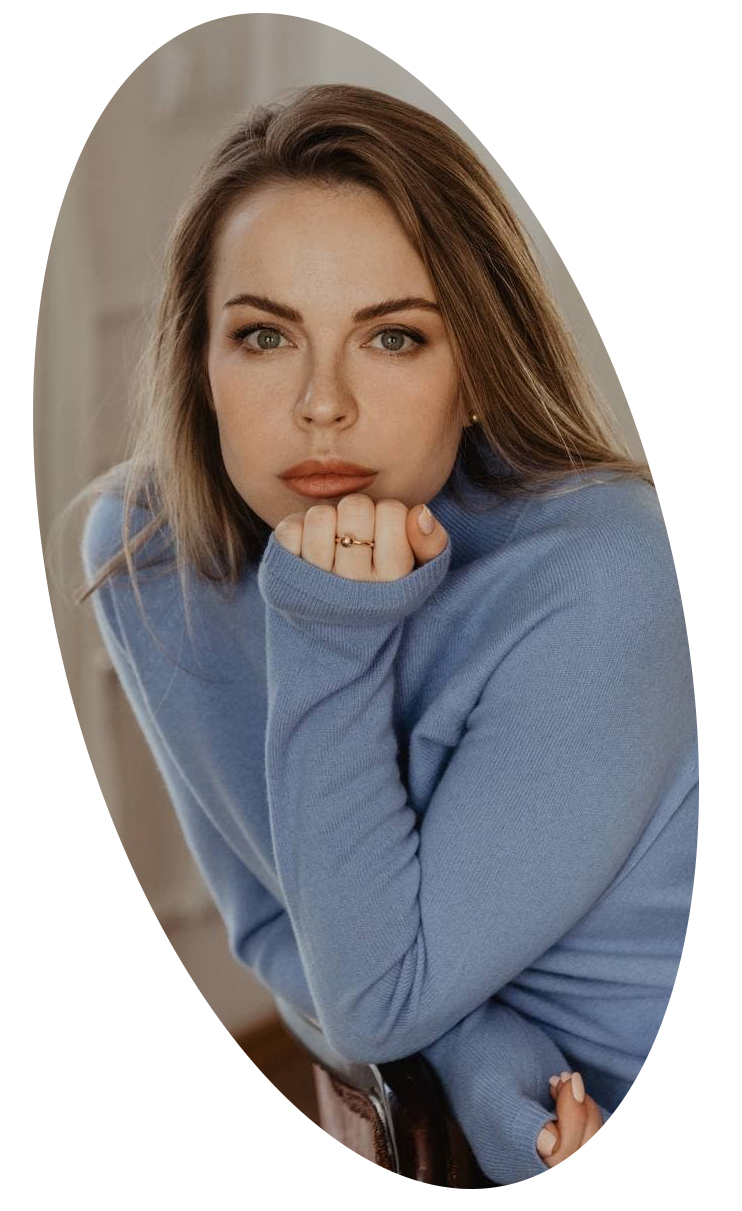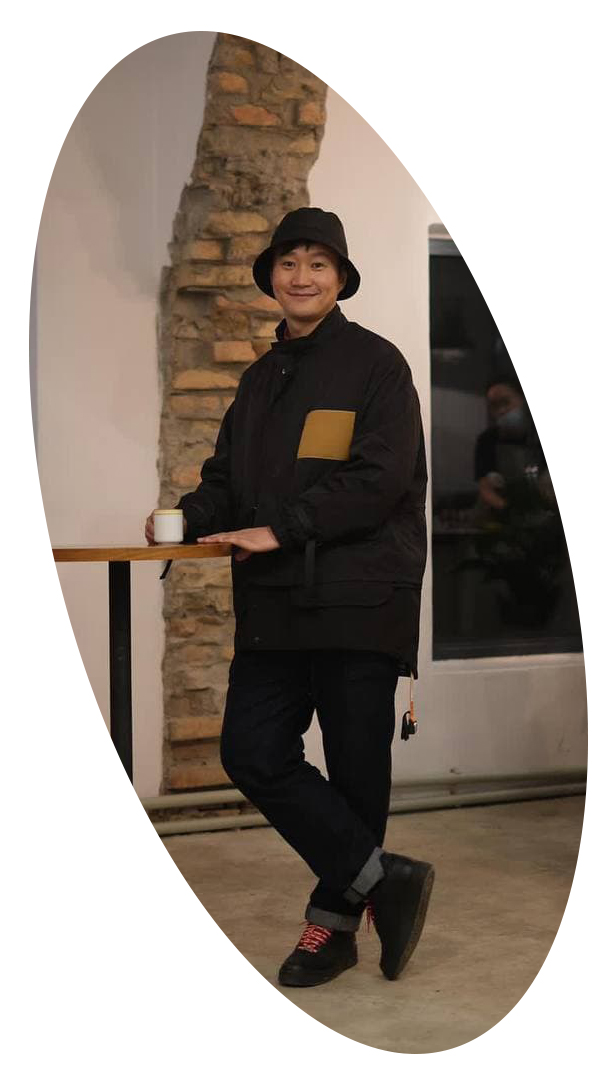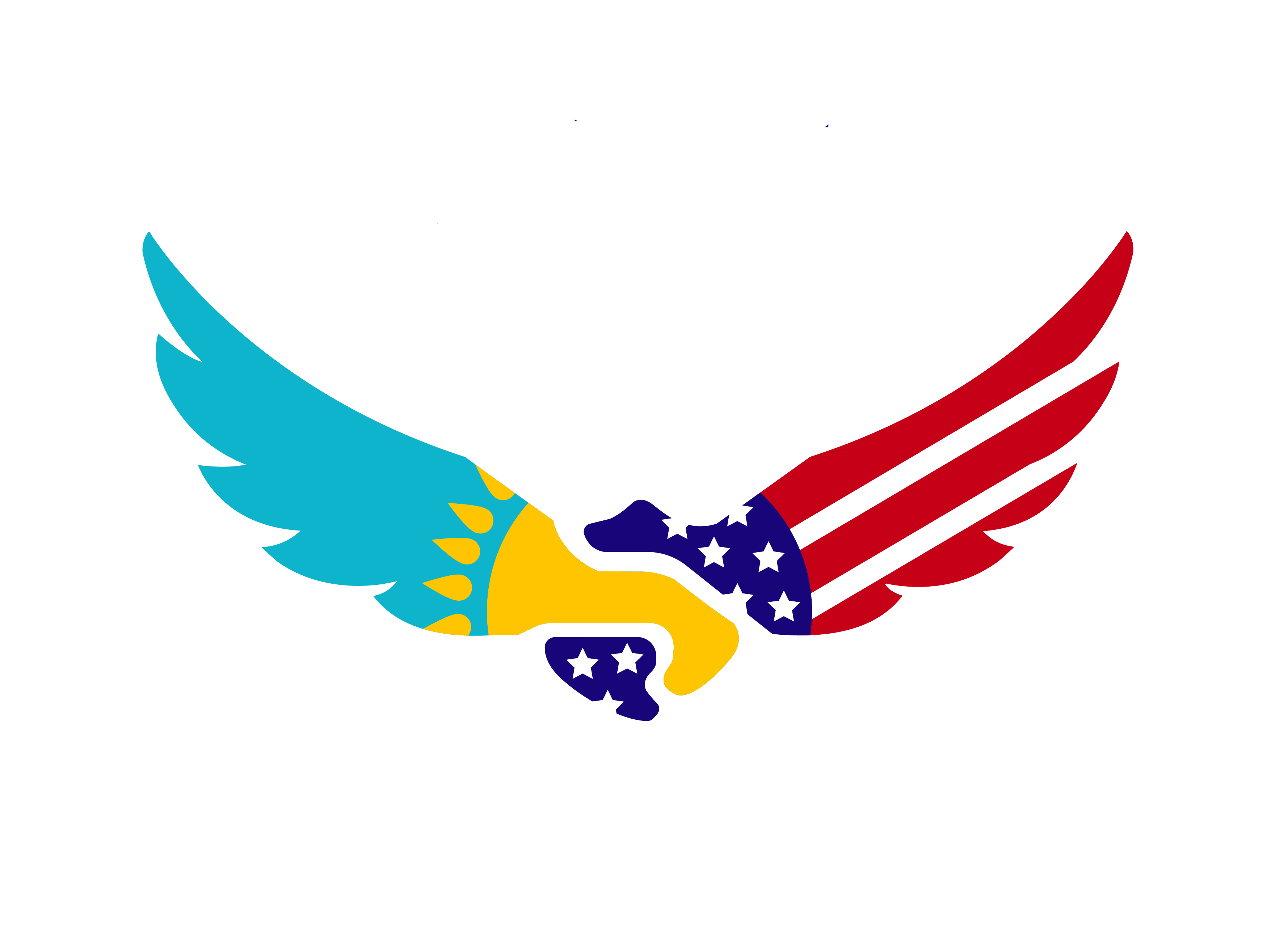What is Needed to Become an Entrepreneur: Stories of Kazakhstanis
Alima Bolatbek and Gulnur Yesbolat
We have a similar vision, and I believe that it is our similar worldviews that attracted us to each other. This is probably why we do not have any conflicts; we discuss ideas and immediately come to an agreement. We both like to dress beautifully and pay attention to our appearance. Nymph sells basic, but interesting, clothing. The clothes we create are for girls like us. We want to help women build their work wardrobe and select everyday basics.
Many people are afraid of failing. This fear can be overcome by making the first step. We did not have many doubts, perhaps because we didn’t intend to launch a big business right away: we just wanted to create a brand of women's clothing and see if we could succeed. We tried and it worked. Of course, we faced force majeure situations: once we shipped an order to Russia, and the courier company lost our package. We had a hard time finding who was responsible for this, and felt uncomfortable before the customer. But we always analyse and discuss lessons learned and look for solutions together.
Unfortunately, we cannot influence such giants as Zara who make tons of clothes every season which then go to waste. However, we urge people to consume consciously and to buy high quality basics which will last several years.
· Salta
· Kirpi
Gaziz Ismukhametov, Arsen Ospanov and Ainur Ospanova

There are not so many market players in the fast casual segment in Kazakhstan. For example, Rocket Japan launched their start-up especially for our project (10 years ago their founders established Manga Sushi). We also have two Russian franchises: Lepim i Varim which offers pelmeni (dumplings) with various fillings, and Farsh, and a burger chain established by Arkady Novikov, the most famous restaurateur in Russia. Also, Pasta Bar and Pizza Mono were adapted to our format under the leadership of the talented chef Akmyrza Kakenov. In total, we have 13 cuisine vendors and two bars.
The trend for foodmarkets was also determined by external economic factors. Our target audience is people who love high quality meals but cannot afford frequent visits to restaurants. We offer delicious and affordable restaurant class dishes with self-service. We are often visited by large groups and families, and we offer dishes to everyone's taste. I believe this segment will only grow.
Our team manages the food market itself. We are responsible for cleanliness and administration, and maintenance of all utilities, so that our vendors could focus on cooking only. We also ensure promotion and marketing of Restopark; we pay attention to each of our vendors, create content, invite artists, musicians and entertainers, and hold various events. Our small team includes eight administrators and managers. The founders are also involved in operations: we always keep our finger on the pulse.
· Toimart
· Air Astana
We have not faced any other force majeure situations apart from the pandemics. Over a year, we have already established all business processes and now try to follow all the rules in order to avoid any unforeseen incidents. We admit our mistakes and reflect on lessons learned. We encourage open discussions within the team and ask each other for advice.
Yuliya Deryabina
My company distributes eco and healthy foods. We have been operating for four years.
After that I started thinking about what kind of business I would be able to scale up in this sphere. One option, for example, was to launch a healthy food delivery network, but the scale of this business was limited. Then I thought about production of healthy foods, but my calculations showed that I did not have sufficient financial resources, and I decided to start distribution. However, my own foods production line is just around the corner.
· Something Else
· Mamma Mia – I think that they have managed to keep their standards high for a long time, despite being a restaurant chain with a not large average size check.
· Beauty Island
Customers in Kazakhstan are now open to buying eco products; the trends come from the West and we are gradually accepting them, albeit not so quickly. Judging by the sales, there is a steady growth and it is clear that people are getting more interested every day. This trend is also evidenced by the number of shops with eco goods being opened in the country. Now clients find us on their own, while we had to look for them before. It means that the demand is growing.
Of course, I had doubts at the very beginning, like everyone else did. I needed at least the minimum investment in the company, and I was afraid that I would fail. But the main thing was to make up my mind and start doing. The hardest thing for me was to learn how to delegate responsibilities because I liked to control all processes.
It was difficult to learn to delegate work to employees and step away. My team is the most valuable element of my company for me. They know how much I appreciate each of them. We have big plans to expand the team this year, we are moving towards this aim gradually taking into account available financing.
When we started, there were four people in the team: me, a sales manager, a driver and an accountant, who worked remotely. Now there are almost 30 people in the company, and I enjoy the close work of the team.
Ji Hoon Jeong
I also travelled along Central Asia, spent a lot of time in Kyrgyzstan and fell in love with its nature. In Bishkek, I opened a Chicken Star restaurant, which became quite successful, but coffee had always been my passion. I really love coffee; I have been drinking it every day since high school, that is, for about 22 years. At that time, the tea culture was highly developed in Korea, and there were few places where you could drink good coffee. But I found such places and spent my free time there. As a student, I worked at Starbucks and believed that it was the best coffee with the best concept; later I realised that good coffee implied many other things. I started thinking about how to conduct the coffee business ethically.
In 2017, I had a chance to open my own coffee house in Bishkek; my first Flask Coffee emerged there. To be honest, we did not make much profit during the first two years. It was more like a hobby that I had because I enjoyed it and loved coffee very much. A couple of years later I moved to Almaty and opened a combined establishment – Chicken Star / Flask Coffee – here, but due to the pandemic, we had to close it and move to smaller premises on Kurmangazy Street. Here we decided to focus more on Flask Coffee, because we thought that coffee houses would be more popular when the quarantine was gradually lifted. Many people have come to prefer home-made food, but coffee is still more enjoyable to drink outdoors. This decision turned out to be correct: despite the fact that last year was difficult, we grew up and opened another Flask Coffee house on Baribayev Street and one in Bishkek, we plan to open two more coffee houses in Almaty and Astana by the end of the year.
· Bangkok
· Spice Mantra
· Spectre Coffee
· Blue Bar
It seems to me that a lot of people do not have patience to proceed with their business, because they didn't love it in the first place. If your only goal is to make money, it will be very difficult for you to overcome challenges.
You face challenges not only in the beginning. Being an entrepreneur is about facing all kinds of difficulties every day. This is your reality, but you become stronger while you overcome them. You get used to it and when there are no challenges to face, you start frantically looking for them.
Photographs are provided by heroes of an article
Данный проект реализуется с помощью гранта от Посольства США в Нур-Султане, Казахстан. Мнения, выраженные в материалах, принадлежат их авторам и не обязательно отражают точку зрения Правительства США или Дипломатической Миссии США в Казахстане.
